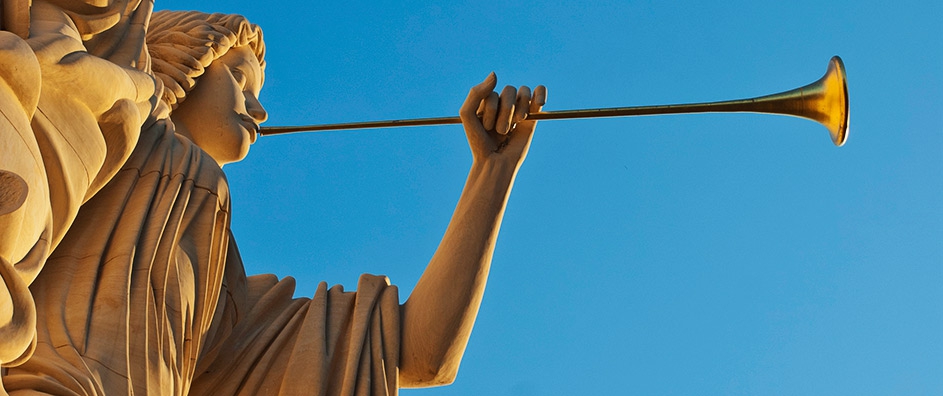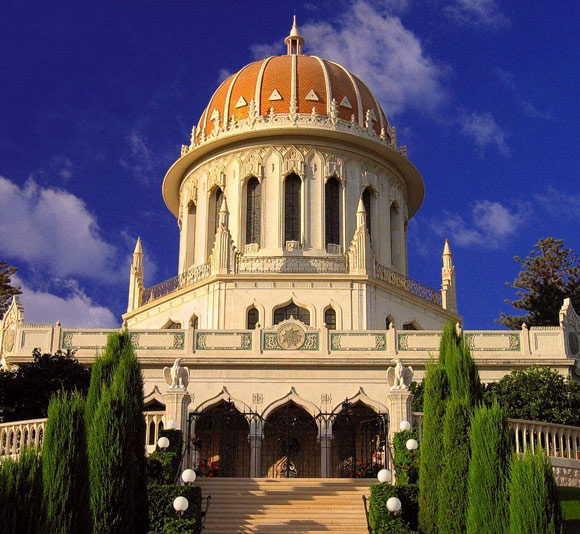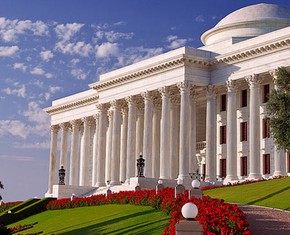The views expressed in our content reflect individual perspectives and do not represent the authoritative views of the Baha'i Faith.
If you’ve ever sung or heard the rousing old Negro spiritual “In That Great Gettin’ Up Mornin’” you’ve heard about the blast of Gabriel’s horn.
Just a few years after America’s Civil War, an African American student brought the song to one of his professors at Hampton University in Virginia. He said he heard it at one of the secret midnight meetings held by slaves in the pre-war period. The student said “I have heard my uncle sing this hymn, and he told me how it was made. It was made by an old slave who… dreamed of the great judgment, and told his fellow-servants about it, and then made a tune to it and sung it in his camp-meetings. (from Religious Folk Songs of the Negro as Sung in Hampton Institute, 1874)
The lyrics of “In That Great Gettin’ Up Mornin’” go like this:
In that great gettin’ up mornin’
Fare ye well, fare ye well
In that great gettin’ up mornin’
Fare ye well, fare ye well
In that great gettin’ up mornin’
Fare ye well, fare ye well
In that great gettin’ up mornin’
Fare ye well, fare ye wellWhen you see the moon a’bleedin
Fare ye well, fare ye well
When you hear the rumblin’ thunder
Fare ye well, fare ye wellIn that great gettin’ up mornin’
Fare ye well, fare ye well
In that great gettin’ up mornin’
Fare ye well, fare ye wellOh pick up your golden trumpet
Fare ye well, fare ye well
Oh blow you trumpet, Gabriel
Fare ye well, fare ye well
In that great gettin’ up mornin’
Fare ye well, fare ye well
In that great gettin’ up mornin’
Fare ye well, fare ye wellLord, how loud can I blow it?
Fare ye well, fare ye well
Blow it so the people will know it.
Fare ye well, fare ye wellIn that great gettin’ up mornin’
Fare ye well, fare ye well
In that great gettin’ up mornin’
Fare ye well, fare ye wellBlow one blast calm and easy
Fare ye well, fare ye well
To wake my people that are sleeping
Fare ye well, fare ye well
The song celebrates Gabriel blowing his trumpet blast to herald the Lord’s return to Earth. The slaves sung it as they went out to work the fields in the morning, hoping for deliverance from their slavery by a new revelation. This great spiritual tradition runs throughout Judaism, Christianity, Islam and the Baha’i Faith, and the Baha’i teachings do abolish slavery and proclaim the oneness of humanity.
Many of the world’s great religious traditions initially began with that symbolic trumpet blast–the appearance and announcement of a precursor, a herald or a forerunner. In Christianity, John the Baptist anticipated a messianic figure greater than himself, foretelling the coming of Christ and recognizing him as the Messiah.
In Buddhism, the ascetic hermit Asita foretold that Prince Siddhartha would ascend to the throne and be named a chakravartin—an ideal universal ruler–or become the Buddha, a title that means “the enlightened one.”
In Islam, Muhammad’s herald—a Gnostic monk named Bahira (or Sergius the Monk in Western accounts)–foretold a vision of Muhammad’s role as a prophet to the teenaged Muhammad and his uncle Abu Talib.
In the Baha’i Faith, the founder and prophet Baha’u’llah also had a herald, another divine messenger who preceded the Baha’i revelation by just a few years. The Bab (which means The Gate and is pronounced the bŏb) heralded Baha’u’llah’s revelation, upended society’s status quo and began a revolutionary new movement to prepare the way for the advent of the Baha’i teachings.
Born on this day in 1819, in Shiraz, Persia, halfway around the world from the slaves singing their song of Gabriel, The Bab’s short life marks a true turning point in human history. His great trumpet blast would bravely challenge the traditions of an entire culture, pave the way for Baha’u’llah’s revelation and result in the birth of a new global religion. The Baha’i writings ask all humanity to listen for the voice of that heavenly herald:
May our eyes be ever awake; may the windows of our minds be flung awide, so that when the messenger appeareth, we may not be deprived of his glory through the veils of preconceived ideas; so that when the heavenly herald shouts the word of God, we may not be deaf; so that when the holy fragrance of the paradise of the Almighty be diffused, our nostrils may not be afflicted with cold. May we be enabled to inhale the perfume, behold the splendor, hearken to the voice and be regenerated with the spirit of the new day. – Abdu’l-Baha, Divine Philosophy, p. 171.
Baha’is celebrate the Birth of the Bab every year with joy and gratitude, so please join us in the spirit of that great, gettin’ up mornin’–Happy Birth of the Bab!

















Comments
Sign in or create an account
Continue with Googleor